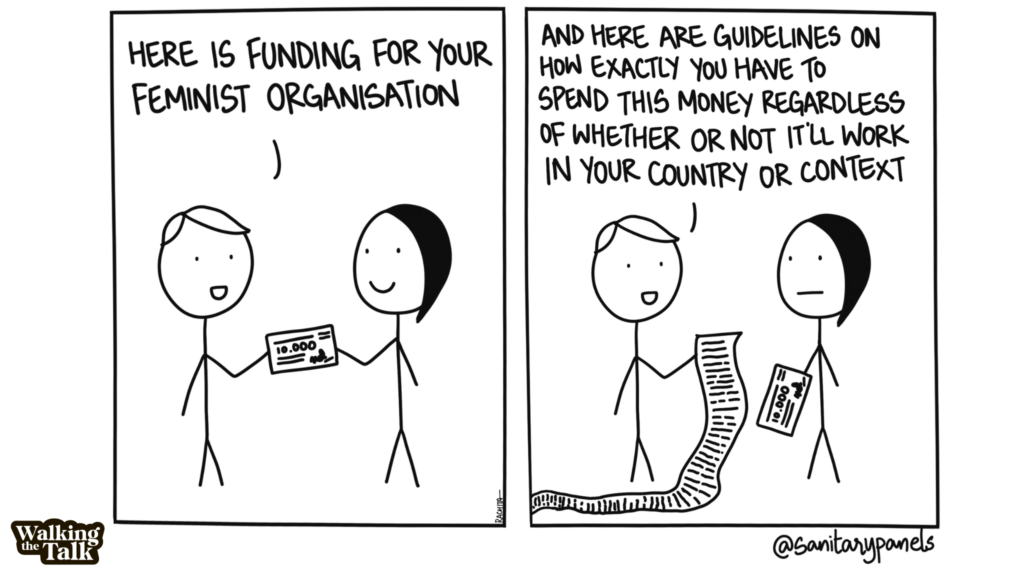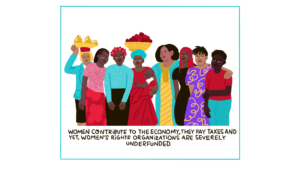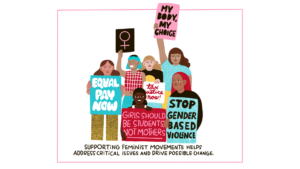Key information
Regions: Latin America, Southwest Asia, North Africa and the immigrant diaspora in Europ
Countries: Mexico, Guatemala, Colombia, Algeria, Libya, Morocco, Tunisia, Egypt and Spain
Researchers: Natalia Marsicovetere Fanjul
Advocacy Summary
The research focuses on Latin America, South West Asia and North Africa and highlights the administrative, ethical and political challenges in managing funds for gender justice organizations. The paper highlights the tension between grassroots activism and professionalization of organizations often demanded by donor agendas. The financial instability, short funding cycles and lack of coverage for living wages compromise the sustainability of gender justice organizations. Organizations usually align their political views with donor agendas in order to secure funding, compromising their ideological grounding. The paper proposes initiating self funding strategies for sustainability and providing flexible, long term unrestricted funding. It can be used to lobby donor agencies and governments to shift power to grassroots movements, allowing them to define their priorities.

Recommendations
- Prioritize Sustainable and Flexible Funding: Provide core funding for operational costs, offer multi-year renewable grants, and adapt requirements to fit diverse sociopolitical contexts to support long-term movement sustainability and reduce administrative burdens.
- Center Equity and Participation in Grantmaking: Co-create grant objectives with civil society, assess power dynamics in regranting relationships, and ensure decision-making is participatory, context-informed, and aligned with grassroots priorities.
- Invest in Protection and Political Independence: Allocate resources for the safety and security of activists, including legal and digital protection, and support self-funding strategies like cooperatives or social enterprises to reduce dependency and increase autonomy.
- Ensure Ethical, Inclusive, and Transparent Funding: Implement intersectional funding that supports diverse justice movements (e.g., gender, LGBTQI+, climate, Indigenous rights), and develop ethical funding guidelines with transparency around sources and political implications.
Authors

Natalia Marsicovetere Fanjul (she/her) is a social psychologist, feminist researcher, and queer activist focused on gender justice issues and human rights. Her recent work has focused on gender-based violence, the dynamics of social justice movements and the threat of the global anti-gender movement.

Maria Aïcha Boumeddiene (she/they) is a researcher, advocate, and activist specialising in LGBTQI+ rights. Their work spans global advocacy, international human rights mechanisms, and exploring funding landscapes, with a focus on marginalized communities, particularly those in the Majority World and their diaspora.




